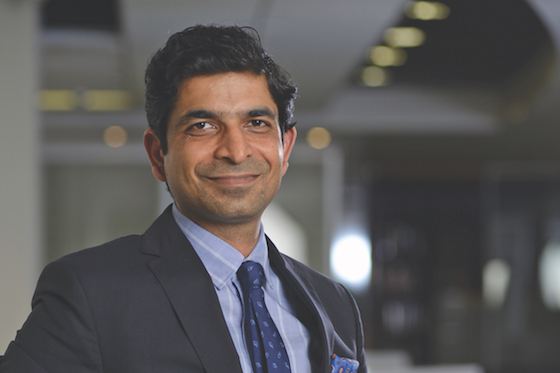Gurgaon-based developer SAMHI received a cash infusion from Goldman Sachs in January – a minority stake of 4.4 billion rupees (US$66 million); that’s on top of US$240 million in investments since 2011. The company aims to grow its portfolio of 25 hotels carrying major brand flags – all in India. Managing Director and CEO Ashish Jakhanwala talks about what the future holds.
HOTELS: How will you leverage the investment?
Ashish Jakhanwala: All the hotels are fully financed, so the money will go to grow the platform. I believe that today, prices in India are fairly rationalized. The biggest trend is that there is very little supply coming in the market in the next three to four years.
H: What kind of properties are you looking for?
AJ: We love displaced assets and are well-placed to acquire them.
H: Where are you looking?

AJ: We like to be in the top 10 to 12 cities in India. Delhi, Mumbai, Bangalore, Hyderabad – these four markets have a lot of potential for growth. We are pretty agnostic when it comes to brand but we would like to ensure that our hotels carry an international distribution.
H: What changes have you seen from the government since Narendra Modi became prime minister in 2014?
AJ: It has a very corporate approach. A lot of initiatives may not see an immediate response in the stock market, which is the barometer for a lot of financial analysis. What Modi is doing is more sustainable for the economy. [Changes] will unfortunately come too slowly for analysts and the media, but for business they will be more sustainable. It will definitely impact companies in the next eight to 10 quarters.
H: Where are opportunities?
AJ: Asset prices. There has been a scarcity of capital in the hotel sector in the last three years. The other advantage is that the markets are maturing. As an asset owner, we feel far more confident of stability.
H: What is the biggest obstacle to getting deals signed?
AJ: Whatever can go wrong does go wrong. [India is] a net importer of fuel. Currency is another concern because you see how volatile the world has become. It’s only in the last three years that I have become concerned what my own central bank does. I don’t think there is much that keeps us awake at night at a micro level. At a macro level, what’s happening at a global economic level affects the capital level of the country.
H: What are your goals?
AJ: In the next 24 months, we definitely see 4,500 to 6,000 rooms. In three to five years, we see ourselves as a 10,000-room company. Other than SAMHI, there is no institutional form of branded hotel ownership, and that gives us a strong base to keep growing the platform.
